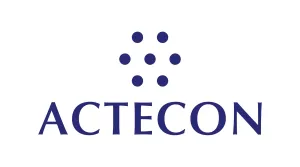The Internet is a functional and effective tool for conducting sales so that the prominence of online sales is increasing day by day. Nevertheless, as internet sales make it difficult for the suppliers to maintain a strict control over their distribution network, those latter may sometimes try to restrict or prohibit their dealers' online sales mainly to prevent sales to unauthorised dealers and protect physical sales points vis-à-vis online sales which are more practical and advantageous for the consumers.
The Turkish Competition Authority ( "TCA") issued the Jotun Decision1 regarding restriction by suppliers on dealers' passive sales through the internet. The TCA held, with its decision, that Jotun restricted its dealers' online sales via an express provision inserted in the Authorised Dealership Agreements.
The TCA emphasised that internet sales provide benefits such as reducing searching costs for customers and distribution costs for dealers, facilitating dealers to reach more consumers in variable locations and creating new business models. Jotun refers to the European Commission's e-commerce sector report which states that vertical restraints on e-commerce have been increasing at the distributorship level and that, to the Commission's opinion, the dealers' right to make online sales should not be restricted.
In its Jotun decision, the TCA explains the Pierre Fabre decision of the French Competition Authority that has been upheld by the Court of Justice of the European Union ("CJEU") and became a landmark case in the EU2. The TCA reminds that in Pierre Fabre, an absolute ban on online sales has to be deemed as a restriction by "object" unless justified by the objective characteristics of the relevant product (e.g. prescription drugs). The TCA further notes that Pierre Fabre's (which is a player in the cosmetics and personal care products markets) defences that internet sales could harm the brand image and that an expert recommendation is required in order to use the products has been rejected. The Jotun decision also mentions the recent CJEU's Coty3 decision where the Court held that it is possible for a supplier of luxury products which adopted a selective distribution system to restrict the sales of its distributors through online marketplaces in order to protect its brand image. Yet the TCA emphasizes that Coty was solely related to the prevention of online sales through third-party platforms and not to an absolute ban.
It should be reminded here that the TCA granted, with its Antis Kozmetik Decision4, an individual exemption to an online sales ban that is almost exactly the same as the one in Pierre Fabre. In Antis Kozmetik, the supplier of certain dermatological products argued (i) that customers must be informed about the special characteristics of the products by specialized salespersons, (ii) that the online provision of such information is not possible, (iii) that online sales impair the effectiveness of a selective distribution systems and (iv) that the reputation of the brand may be damaged in the absence of specialized salespersons as the misuse of products may deteriorate customer satisfaction. The TCA consequently granted an individual exemption to the absolute ban on the online sales of distributors mainly due to these reasons.
Jotun is important as it indicates that the TCA seems to adopt a similar approach with the CJEU in terms of absolute bans on online sales after the amendments made in the Guidelines on Vertical Restraints, changing its relatively loose position in Antis Kozmetik. In Jotun, it has been decided that Jotun's online sales ban could not benefit from neither the group exemption nor the individual exemption. The TCA thus held that Jotun should revise and amend all of its dealership agreements and cease all its practices regarding passive sales restrictions, including online sales bans.
Jotun is also significant as it provides some crucial insights as to how suppliers may preserve the integrity of their selective distribution system, which may be threatened by opportunities provided by online sales. Jotun claims that unless a ban on online sales of the authorized dealers is in place, unauthorized dealers may also purchase the products online for the purposes of reselling. While recognizing the validity of such claim, the TCA stipulates that an absolute ban on the online sales of the authorized dealers is a disproportionate measure and states that it would be possible to remove that risk by imposing a limitation on the amount of products that could be purchased by an individual customer instead (thereby eliminating the possibility of engaging in unauthorized resales activities).
It is highly probable that the TCA will be dealing with various forms of online sales restrictions in the near future and that each new decision will contribute to the shaping of the new legal framework to be established.
Footnotes
1. The TCA's decision dated 15.02.2018 and numbered 18-05/74-40.
2. Case C-439/09 Pierre Fabre Dermo-Cosmétique SAS [2011] ECR I-9419.
3. Case C‑230/16 Coty Germany GmbH v Parfümerie Akzente GmbH ECLI:EU:C:2017:941.
4. The TCA's decision dated 24.10.2013 and numbered 13-59/831-353.
The content of this article is intended to provide a general guide to the subject matter. Specialist advice should be sought about your specific circumstances.


